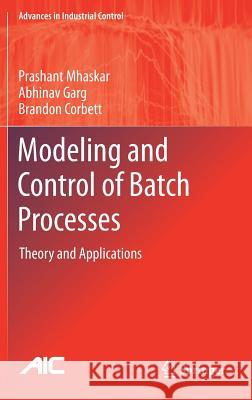Modeling and Control of Batch Processes: Theory and Applications » książka
topmenu
Modeling and Control of Batch Processes: Theory and Applications
ISBN-13: 9783030041397 / Angielski / Twarda / 2018 / 335 str.
Kategorie:
Kategorie BISAC:
Wydawca:
Springer
Seria wydawnicza:
Język:
Angielski
ISBN-13:
9783030041397
Rok wydania:
2018
Wydanie:
2019
Ilość stron:
335
Waga:
0.68 kg
Wymiary:
23.39 x 15.6 x 2.06
Oprawa:
Twarda
Wolumenów:
01
Dodatkowe informacje:
Wydanie ilustrowane











